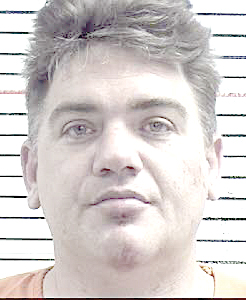BLAIR – A Fairfield County man charged with killing his parents remains at a state mental hospital while a judge mulls his future.
Matthew Richard Mahorsky, who was found not guilty by reason of insanity in the 2013 shooting deaths, appeared in court June 28 for a hearing to decide whether to ease restrictions on his confinement.

Matthew Richard Mahorsky
Mahorsky, 45, of Blair, has been confined at the state mental hospital since the trial concluded in October 2017. He’s being housed in a high security wing, according to prosecutors.
The S.C. Department of Mental Health wants to remove some restrictions on Mahorsky’s confinement. Solicitors and the Fairfield County Sheriff’s Office, however, vehemently objected to the Department of Mental Health’s request.
“They were recommending less restrictive measures on him as far as their treatment,” said Riley Maxwell, an assistant solicitor with the 6th Judicial Circuit. “We objected to that, we want him to remain where he is. He is behind a locked fence door. He is secure now.”
Mahorsky is currently housed at the G. Werber Bryan Psychiatric Hospital in Columbia, according to the Department of Mental Health.
But agency representatives declined to comment about the June 28 hearing, citing patient privacy laws.
A spokesman said generally speaking, discharge hearings follow an intensive process that requires approval from a DMH review board, which then makes a recommendation to an agency deputy director, who must request a hearing if they believe one is warranted.
If so, it’s up to a judge to determine whether or not the patient should be released, said Mark Binkley with DMH.
“The Court may and usually does impose conditions when discharging an individual found [not guilty by reason of insanity],” Binkley said in an email. “The court’s jurisdiction over the defendant continues for as long as the defendant could have been incarcerated.”
The S.C. Department of Probation, Parole and Pardon Services normally monitors defendants found not guilty by reason of insanity cases.
In Mahorsky’s case, though, the DMH is the lead agency since no discharge hearings have been held, said Peter O’Boyle, spokesman for Probation, Parole and Pardon Services.
“We will not begin monitoring his case until and if he has a Discharge Hearing by [the Department of Mental Health],” O’Boyle said via email. “I believe this would be a determination that he is mentally stable enough to go back to society, but [the DMH] may have to define that for you.”
O’Boyle said that as of March 31, the agency was monitoring 126 people who had been found not guilty by reason of insanity.
Defendants found not guilty by reason of insanity are typically hospitalized at the G. Werber Bryan Psychiatric Hospital.
Patients with prior serious criminal charges are treated in a secure facility at the hospital called Forensic Services, separate from patients who are civilly committed through a Probate Court, Binkley said.
In April 2014, the state Supreme Court issued an order establishing interagency protocols spelling out the handling of defendants found not guilty by reason of insanity, or NGRI.
The high court ruled that persons falling under this designation are not considered prisoners because they’ve not been found guilty of a crime.
“Rather than incarceration, they are committed to care and treatment,” the order states. “The terms of that care and treatment are to be therapeutic and not punitive.”
The order further states that defendants considered not guilty by reason of insanity be committed to SCDMH custody for a period not to exceed 120 days “for the purposes of evaluation to determine the manner of future care and treatment of the Defendant.”
After 120 days, an initial evaluation report is submitted to a chief administrative judge, who then reviews the case, the order states.
Mahorsky was taken into custody shortly after the bodies of his parents, Ruth Marion Mahorsky, 70, and Richard F. Mahorsky, 71, were discovered outside their home off S.C. 215 in Blair.
His parents had been shot to death in the head. Matthew Mahorsky was charged with two counts of murder and possession of a firearm during the commission of a violent crime.
Mahorsky emerged from the home about 10 minutes after deputies arrived and surrendered.
Authorities were told Mahorsky had a history of mental illness following a separate incident in 2004, when he pointed a weapon at his father’s head. Mahorsky received a one-year suspended sentence with three years’ probation in the 2004 incident.
In May 2013, a judge granted a defense motion to conduct a psychological evaluation of Mahorsky, though his criminal case still went to trial, resulting in the not guilty by reason of insanity verdict four years later.
“Mr. Mahorsky has an extensive mental health history,” Mike Lifsey, the public defender representing Mahorsky, told Judge Brooks P. Goldsmith at the May 2013 hearing. “There were statements made at the time of his arrest that give issue there as to his competency to stand trial.”











